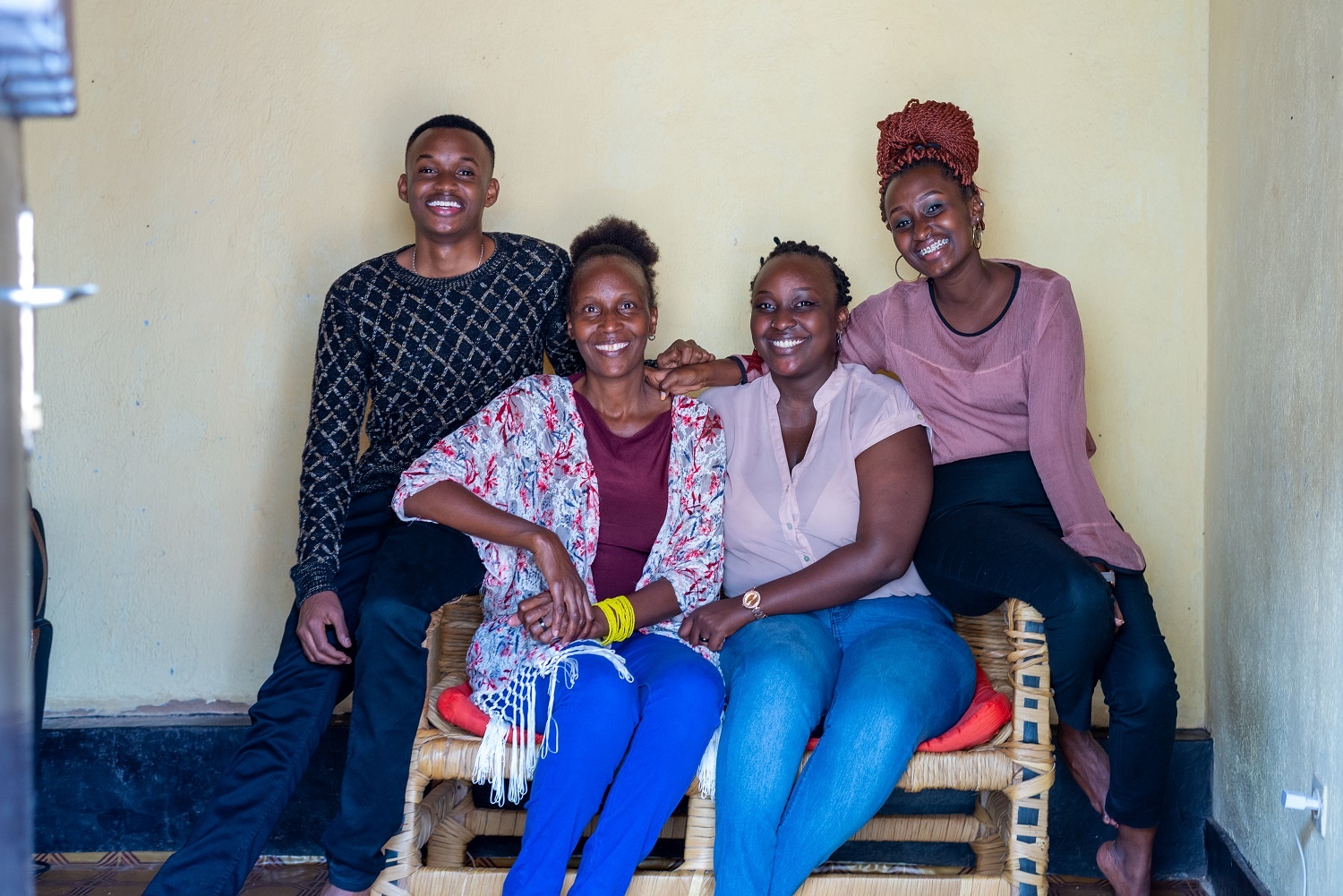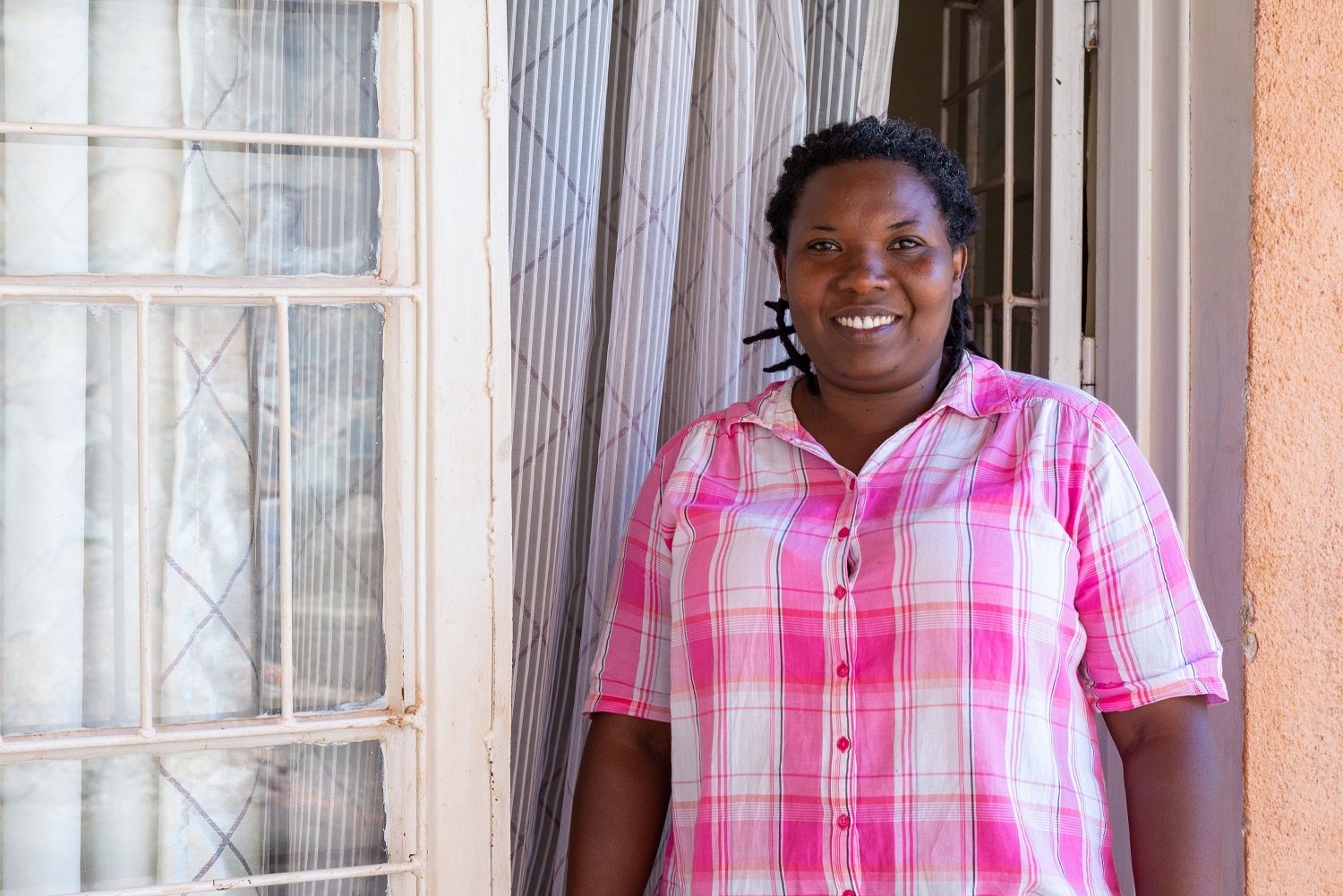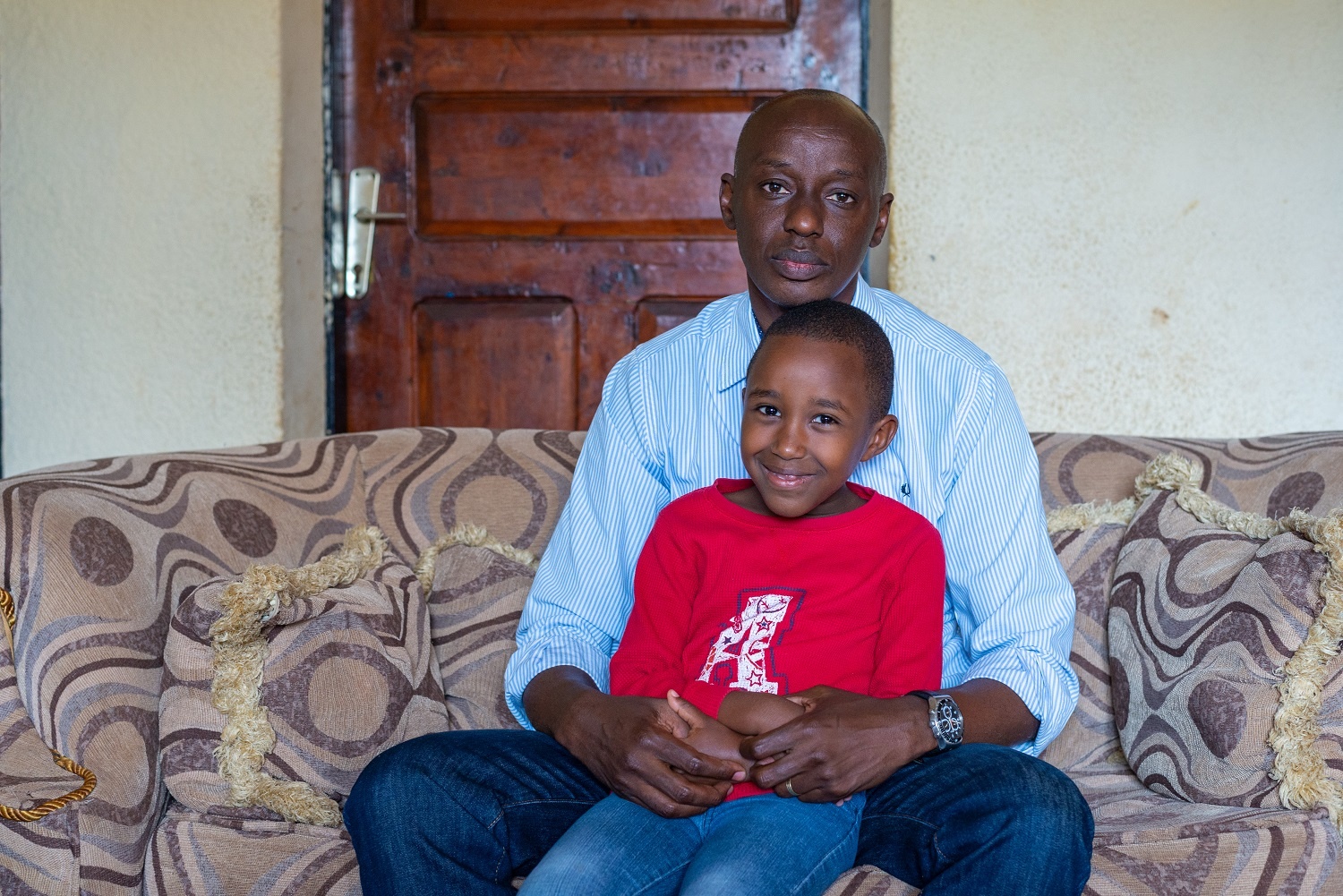Rwanda, a Home Away from Home: Families Open Doors to Refugee Children

Rwanda, a Home Away from Home: Families Open Doors to Refugee Children
On a hot summer afternoon in Kigali, three kids play in the compound of a modest-looking residence, a few miles from the Kigali International Airport. Their happiness as they ran through the yard is uncontainable, the little one repeating 'Maintain distance, one meter and wash your hands' – a famous health announcement to fight COVID-19. A few years ago, this laughter in this family wouldn't be heard as cheery.
“They are like this all the time. They're always happy,” says Jacques*, the father of the two kids and foster parent of the third, an eight-year-old unaccompanied refugee girl. “We’ve always dreamed to foster a child. My wife was raised in a foster family, and she’d often spoken about her aspiration to give back to other children. The opportunity to care Arlency* was a dream come true for our family.”
Conflicts in the country of origin in 2015 forced Alrency [who was only three at the time], her grandmother and her nanny out of their country at a moment's notice. After fleeing to Rwanda, Arlency 's grandmother relocated to Uganda just a few weeks later, leaving the baby and her nanny behind. The nanny found work at Jacques’ house and the parents agreed for the child to live under their care.
“We have established a close relationship. She calls me ‘Papa’,” Jacques says.
“I consider the kids my own. Their mum was a good friend of mine.” A refugee mother of four, Nadine* decided to foster three refugee children after their parents left them in May 2019. Carine says she wants to show her children that people should help each other.
“There would be no pain in the world if we all helped each other out. If you show love for a child, a child will grow up to love others,” she says. “When kids grow up watching you support people, as they grow up, they support those in need too.”
Mama Michael * lives a happy life with her daughter and two foster children. They're all refugees from the same country. One of those kids has been in the family for more than 12 years. Even though the caregiver lost almost everything when she fled, “a quiet place to sleep and a life of prayer help her cope with the situation”. Now she is helping the children and it also helps her cope with the situation.
“I left everything behind when I fled. Compared to living in my own home, I have to live in a single room with all the children now,” she says.
“Three wishes: education, livelihoods and conducive shelter”
Like many others, refugee and Rwandan foster families wish for nothing more than to improve their own situation and their families. They want to provide quality education to their children and to make sure foster kids under their care feel loved and protected. However, the rapid socio-economic transition in the midst of COVID-19 has impacted many of these families.
"If three wishes were given to me, the first would be to have a bigger house so that our seven children would live comfortably; the second one to have the means to provide meals, school fees and clothing for our children; and the third is to have a job to help my husband take care of our family,'” Nadine said.
Jacques* wishes to be able to provide quality education to Arlency. “I wish I could pay the girl's school fees and provide my family with food and shelter. My second and final wish would be to see the girl and her family reunited. Living with her family would be good for her. Her mom and dad are still alive,” he said.
Mama Mike depends on the generosity of her sisters [resettled in Canada] to provide for the three children under her care. "Instead of waiting for my sisters to help, I wish I had means to provide for my children. I would also like a house to call my own and be reunited with my sisters," she said.
“My Aunt has a Big Heart; I say Thank You”
Michael -call him Mike– joined Mama Mike’s family when his parents separated, he was only five years old. The secondary senior 4 student is grateful for the great love provided by his aunt.
"My Aunt has a great heart. If she sees needy people, she helps them. She treats me as her own child and provides me with the same quality of care as if I were her biological child," he said. "It's hard to live in Rwanda because my aunt has no job. She can’t afford all of my needs because she doesn’t have the money.”
Mike wants to be a professional photographer someday.
* Name changed for protection reasons.
*** *** ***
Rwanda has accommodated refugees for more than two decades. As of 31 May 2020, 148,938 refugees mainly from the DRC and Burundi are registered with UNHCR, 76 percent of whom are women and children. UNHCR coordinates the refugee response with MINEMA and other partners and provides protection and humanitarian assistance to all refugees with attention to the specific needs of the most vulnerable, including children at risk.
This assistance is made possible through the generous support of donors such as the European Union via the European Commission Humanitarian Assistance (ECHO) and the US Government, whose help enables refugee children to access child protection and education services.




